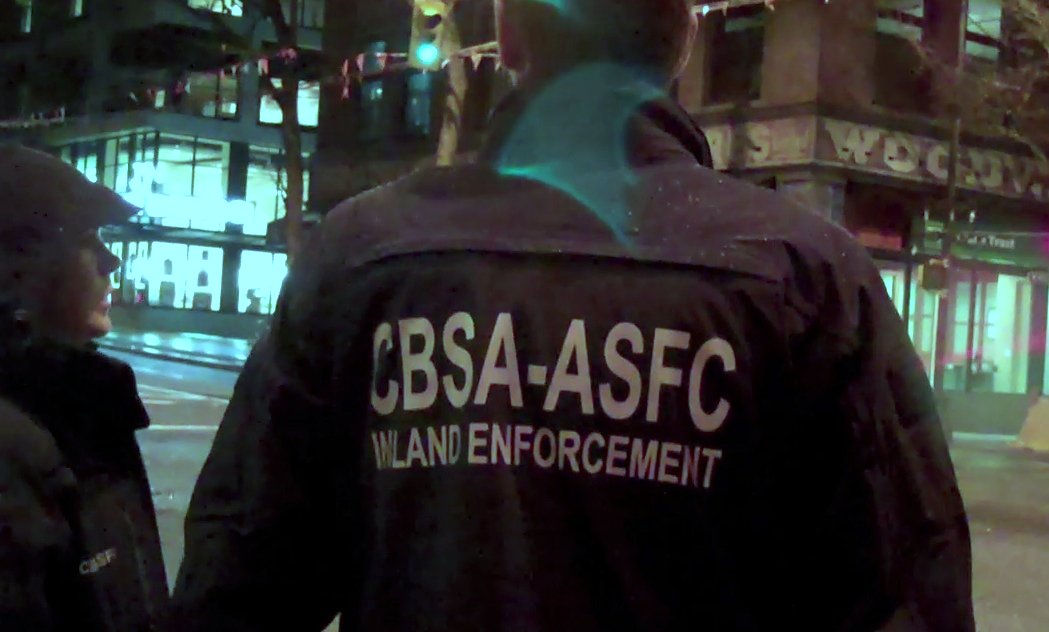Like this article? rabble is reader-supported journalism. Chip in to keep stories like these coming.
In the wake of the public outcry from two more deaths of immigration detainees over the past few weeks — Melkioro Gahungu and Francisco Javier Romero Astorga — the response from Canada Border Services Agency (CBSA) has been predictable.
Keep it quiet. Release as little information to the public as possible. Hope it goes away.
So far, with the twelve previous deaths in immigration detention since 2000, this strategy has been effective.
Not this time.
Critics have already long pointed out that more oversight of the CBSA is needed. CBSA remains the only major Canadian law enforcement agency that is not subject to such oversight.
Yet the implementation of civilian oversight over the CBSA is not enough. The fact is that Canada’s current immigration detention system is not only failing immigration detainees, it is failing Canadians as well.
In 2013, the CBSA spent some $57.3 million solely in order to detain some seven thousand or so migrants. Out of this $57.3 million, around $20 million was transferred to the province of Ontario alone to house immigration detainees in maximum security provincial jails.
By its own admission, CBSA states that detaining an individual costs the government around $259 per day, per detainee. Annualized, each migrant cost the government roughly $100,000 per year, in 2013 dollars, to keep in detention.
This number itself is mind-bogglingly expensive no matter how one frames it. It begs the question: what other government program would receive $100,000 a person in funding to spend towards non-citizens? Only a program that serves to punish non-citizens as harshly as possible, it seems.
In the most egregiously long detentions, such as that of Victor Vinnetou, who has been in detention for some 12 years because of identity issues, the bill has well exceeded $1 million. CBSA seems content to just let these people rot in jail — on the taxpayer’s bill.
Further, there is no evidence from the government to suggest that this incredibly expensive and elaborate detention system has been even remotely effective in achieving improved compliance with immigration laws and regulations.
If anything, increasingly onerous immigration requirements, particularly in family reunification and for temporary foreign workers, have created a situation in which there is an increase the number of people in Canada that find themselves without status.
The treatment of immigration detainees in Canada, particularly those facing mental health issues, shocks the conscience. In 2015, the UN Human Rights Committee slammed Canada on the indefinite period of detention allowed under the current legal framework as well as the lack of meaningful alternatives to detention that are offered.
Mental health issues, such as suicidal tendencies, can be used a reason to arrest, detain, and transfer a detainee to a maximum-security provincial prison, under the auspices of ‘providing more comprehensive mental health treatment’. Yet studies of immigration detainees in Canada have shown that conditions of immigration detention exacerbate pre-existing mental health conditions and create new mental problems in detainees that previously did not exist.
Immigration detainees, despite the fact that the vast majority have no criminal charges, are frequently intermixed with criminal prison populations. In many cases, they have fewer services and activities than even those afforded to the normal prison population.
In terms of legality, there is a gaping and cavernous legal vacuum which envelopes the entirety of the immigration detention system. This includes a lack of civilian or judicial oversight, no laws governing when a detainee is to be transferred to a maximum security provincial jail, lack of institutional accountability over detainees’ conditions, and almost complete and unfettered discretion by Immigration and Refugee Board Members regarding whether to keep a detainee in detention indefinitely.
This broken system desperately needs to be reformed. Provincial jails are no place for people that have violated immigration laws. Criminal facilities should be used exclusively for the criminal justice system, immigration facilities should be used exclusively for the immigration system, period.
Given the seriousness of arresting and keeping an individual in detention, proper judicial oversight must be a crucial aspect of any rehauled system. A presumption of release should be built into the law to avoid indefinite detention and community based alternatives to detention should be meaningfully explored to reduce the overall number of immigration detainees at any one time.
Despite all of its chronic problems, comprehensive immigration detention reform has not yet registered as a priority for this federal government. Yet in this moment there exists a tremendous opportunity to work together with provinces and territories, such as Ontario — which is currently undergoing broad-based reform of its correctional system — to rethink our immigration detention system from the ground up.
In the end, we must demand that our government change the immigration detention system to reflect the values that Canadians aspire to: transparency, accountability, effectiveness, compassion and legality.
Vince Wong is a staff lawyer with the Metro Toronto Chinese and Southeast Asian Legal Clinic.
Like this article? rabble is reader-supported journalism. Chip in to keep stories like these coming.
Image: Flickr/2010 Legal Observers



